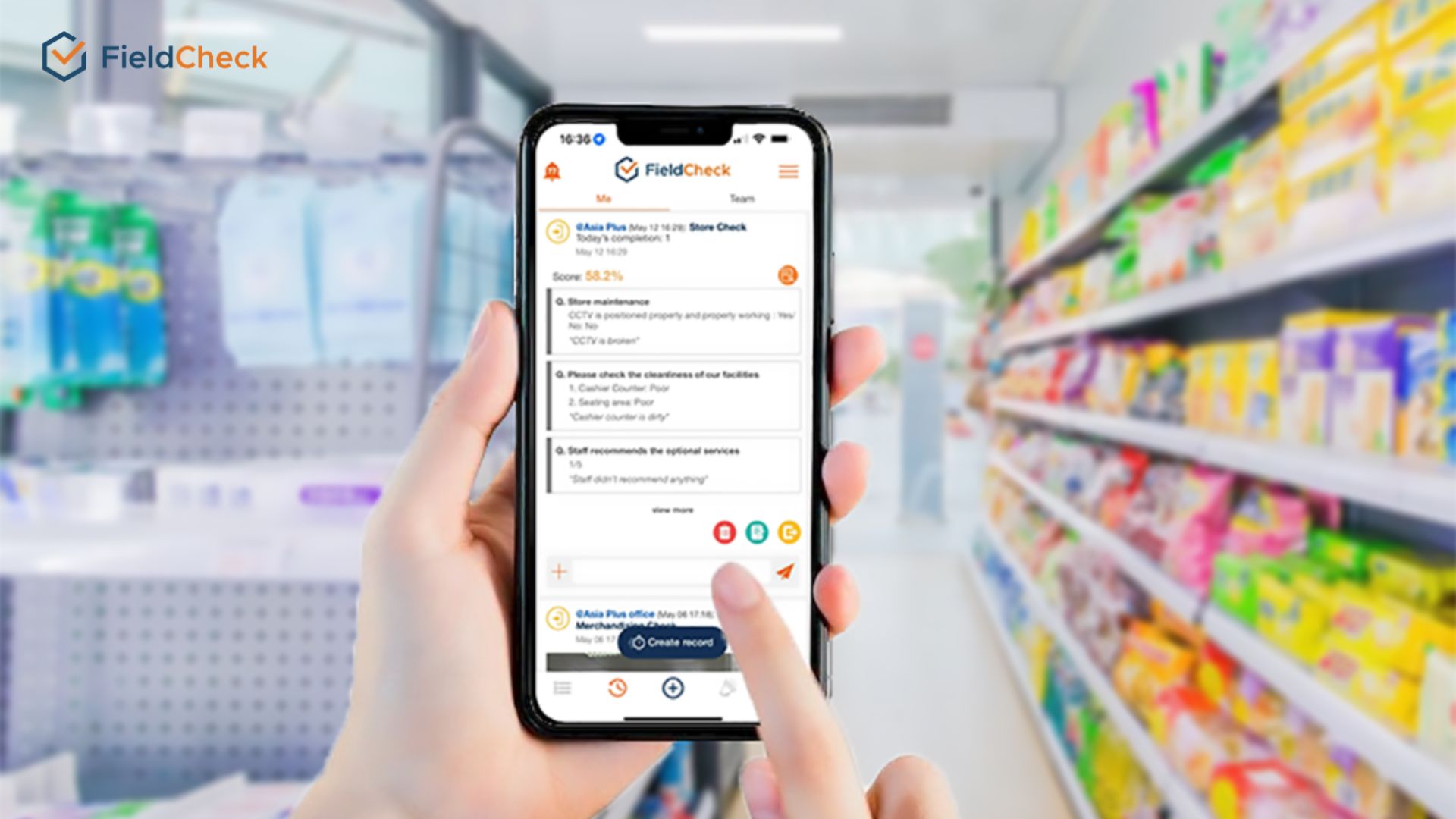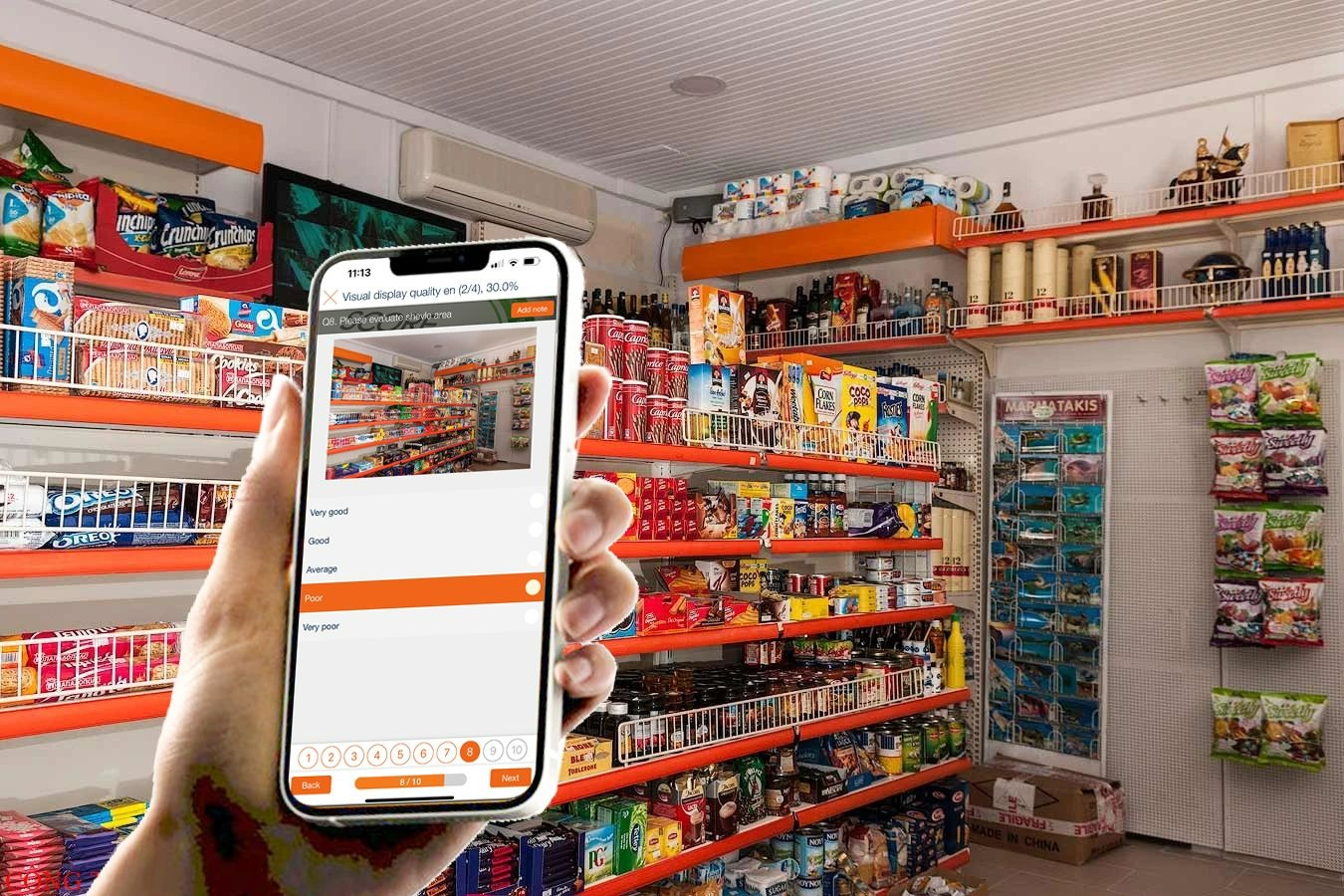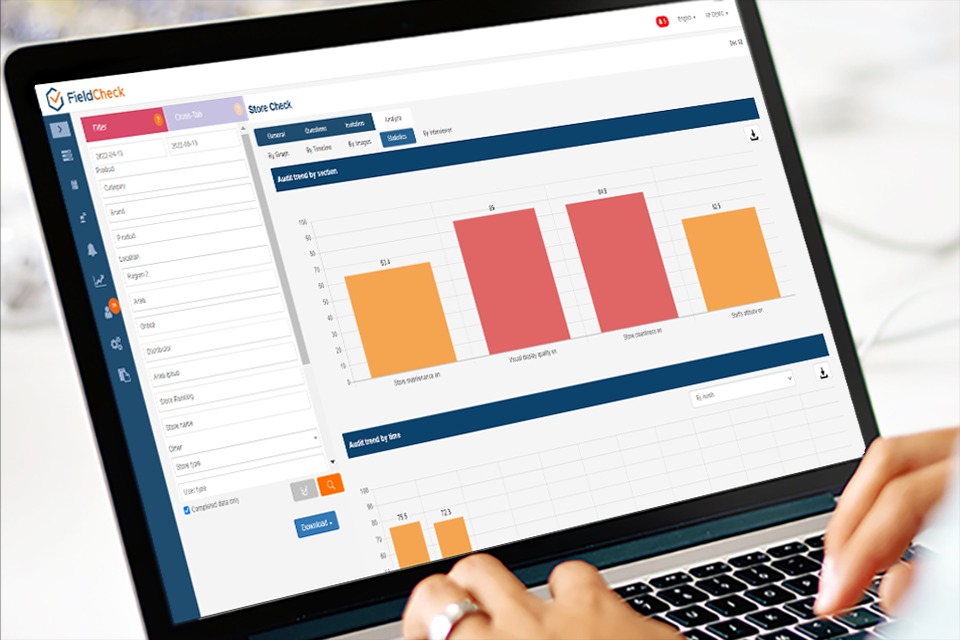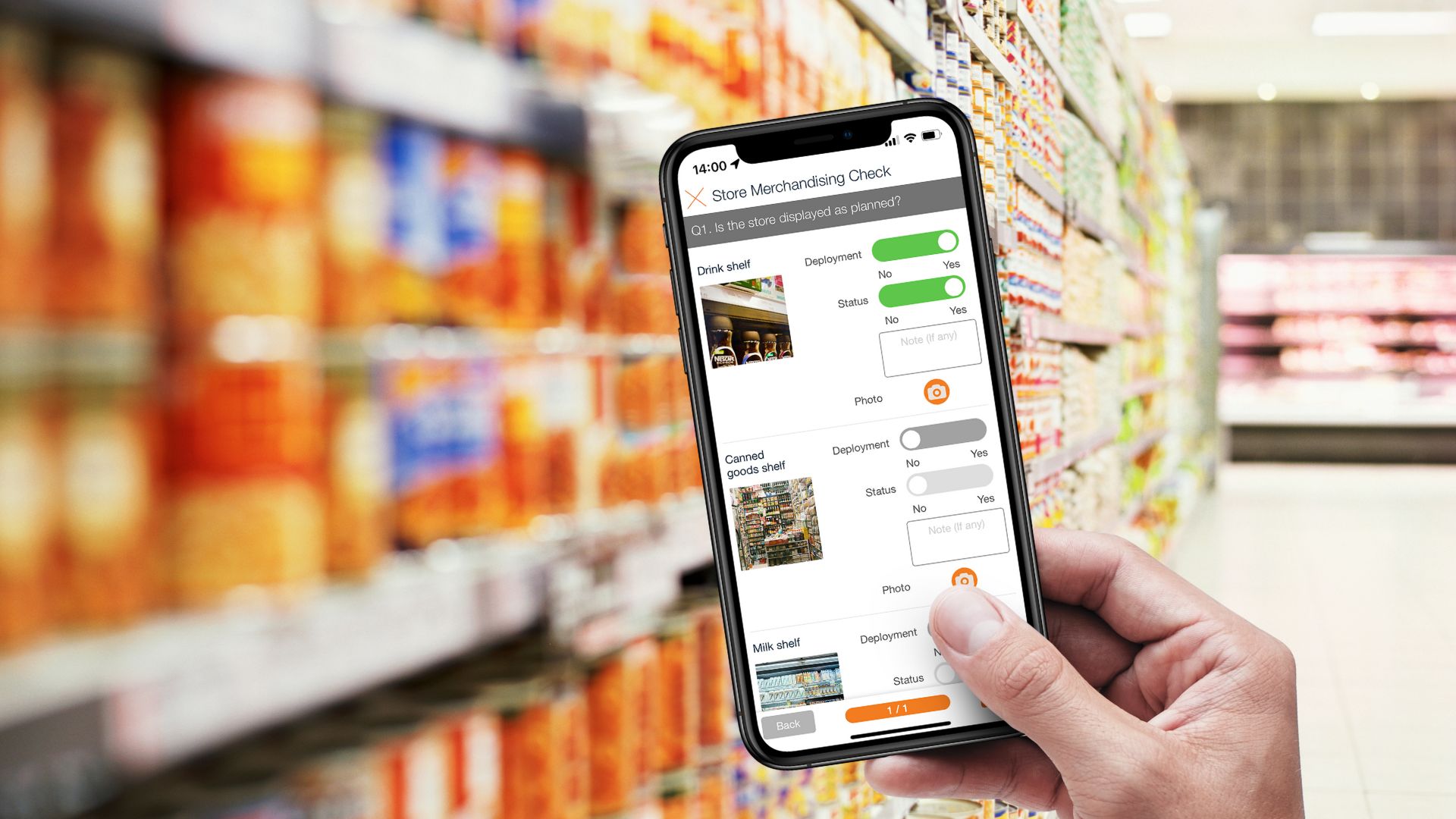Store Audits: How Well Do You Get Your Stores?
Knowing what is happening at your stores, from fittings, fixtures to your store facility’s condition and so on will help you to deliver essential decisions to drive sales and develop sustainably.
But how to do that? Store audits are what you need. To help you conduct a more efficient store audit, we have researched and compiled essential information in today’s article. Scroll down to explore!

Store audits are critical for owners to evaluate store's performance
Why Store Audits Are Important
For store owners, data about their stores are held on different spreadsheets. It is regularly outdated and cannot be perceived as reliable and accurate. This is particularly important when retail businesses utilize it to allocate the right quantities of materials to stores.
Via retail audit, you can know your store's details to carry out operating activities in a better way. It is best to know which signage is utilized at stores and if it complies with your store regulations.
3 Types Of Retail Store Audits And How Long Does Each Store Audit Option Take?
You can do a store audit in 3 ways as follows:
Physical Store Audits
Auditors will visit assigned stores and evaluate the number of fittings and fixtures at the site. The manager generates the questionnaire for auditors to complete at stores, accounting for several weeks based on the data details you want to collect.
Once the questionnaire has been decided, the auditors are trained in the way to accomplish retail operations properly, and test audits are submitted on a few stores, taking a week or so.
When a complete retail store audit commences, auditors can go to about four stores, so the timeframe will rely on the number of auditors and retail stores. It does not mean that more auditors will conduct a faster audit process and perhaps lead to a loss in collected data quality.

Auditor visist the store to conduct retail inspection
Pros:
- Accountability is with auditors
- Proper counts guaranteed
- Other information, like images, is collected simultaneously
Cons:
- Time-consuming
- Highest cost
- Mistakes require re-visits
Virtual Store Audits
Auditors will use retail audit software like FieldCheck to generate surveys and ask regional or store managers to do audits in-house. For virtual audits (also known as remote audits), FieldCheck helps auditors to create online questions on the system and provides communication tools to the team conduct audits.
FieldCheck alters paper-based checklists with digital ones, which provides auditors with a more agile way to perform a store audit without worrying about losing the paper or compiling the figures from spreadsheets, as all submitted tasks will be automatically analyzed on the system for in-depth graphical analyses.

Mobile audit app is very helpful for auditors
Pros:
- Lowest cost
- Quick results
- Other information, like images, is collected simultaneously
- Fast rolled-out
Cons:
- Staff might not get what is required
- Depend on regional managers/store colleagues
- Reliability can vary
Hybrid Store Audits
The last type of retail store audit combines physical and virtual methods. For instance, FieldCheck can be utilized to conduct virtual audits, but auditors will be assigned to conduct store checks.
Alternatively, collected data from physical audits can be monitored and evaluated by virtual audits by the back-office teams. When store owners grasp the processed data, they can get the store trend easier and make better management decisions.
Accordingly, retail stores can operate more efficiently and limit potential risks. They can also save and update the store data centrally and update the store changes in real time.

Pros:
- Medium cost
- Physical spot checks on virtual results and vice versa provide more reliability in data
Con:
- Not all results are guaranteed
Four Pitfalls To Avoid When Auditing A Store
We know the advantages of retail audits, but it is worth noting that retail audits may become a big time waster if they are not structured and analyzed correctly. Let's find out four major pitfalls that torpedo best intentions and how to handle them.
#1. Make Audits Too Broad
There is a saying, "Trying to do too many things results in not doing any of them very well." The maxim is so true for retail audits because the efforts of cramming too many things into one only store audit can make it incredibly difficult to handle major problems adequately.
Therefore, it is best to carefully consider your stores' needs while scheduling retail audits at a time. It is better to review which aspects of your stores you want to conduct audits.
There are several fields that you can check at your stores as follows.
Store Operations
For this part, you will evaluate how your stores conduct different operational activities to guarantee they can meet your given standards. For instance, you can audit how your stores handle returns to review if the proper procedure is adhered to.
An operational retail audit often takes place at preset times throughout the year. On the other hand, they are possibly generated as a before/after support mechanism for special store programs or seasonal offerings.
Merchandising Retail Audit
You might not know this, but merchandising audits are widespread occurrences. Accordingly, auditors will check merchandising initiatives in your stores to see if they are currently up to snuff. Are the store's products displayed accurately? And do your stores comply with headquarters' planogram? These are some questions that you can consider when doing a merchandising audit.
Merchandising retail audits can also be conducted on a seasonal basis or follow preset schedules.
Inventory Loss Prevention
This type of audit is aimed at cutting waste, theft, vandalism, and risk. The audits ultimately take place at specific times in the year and help reinforce the store's commitment to reducing costly income drain.

Checking stores
Customer Service
Audits in customer service are designed to evaluate your stores' customer support practices. This type of audit will be conducted at predetermined times. That said, setting up an anonymous retail audit can deliver an especially accurate overview of your staff's performance.
Health and Safety
Health and safety audits can be conducted throughout the year to check the store's compliance with government regulations and product handling guidelines. Regular audits can identify some workplace hazards at stores.

Too much data to be processed can be a headache for managers
#2. Doing Manual Store Audits and Self-Assessments
It is obvious that store owners that want to cut costs might do manual audits or depend on self-assessment. Though this way might help save resources in the short term, it can deliver more disadvantages than benefits.
For a better understanding, let's evaluate a specific manual route. If you conduct retail audits manually, you might spin your wheels by utilizing this woefully-inefficient procedure.
To begin this time-wasting ordeal, you are better off asking a store staff to fill out paper-based forms that you might want so they will not be thrown away or misplaced.
Then, a back-office staff might input the collected data into spreadsheets; hopefully, he/she does not make any data entry mistakes that skew audit results. You, then, compile all the data and conclusions.
This process indeed takes too much time that you can spend on another aspect for better store operations instead of doing such manual work.
On the other hand, store self-assessments can put employees and managers in charge of evaluating stores rather than getting a third party or district manager to do the task.
It is worth noting that store self-assessments do not deliver a positive result to keep the employees accountable. Those who grade their work will let the biases get in the way and will not be crucial enough to evaluate the efforts properly.

Store self-assessments do not deliver a positive result to keep the employees accountable
So the question is, what should store owners do instead? For beginners, it is advisable to avoid manual audits and utilize digital processes instead. Many retail store audit apps like FieldCheck now allow you to generate digital checklists while scheduling retail store visits and provide a communication tool to keep every member on the same page.
You might think that having an app to help you conduct retail audits might be a big investment, but the efficiency and time savings practically make it more than worth it.
One more thing, it is best to avoid store self-assessment. Instead, you might need the help of district managers to do audits and consider using third-party audit businesses to help you do that. You might want auditors to check if your store is operating as expected, spot ongoing problems, and help you make proper recommendations.
#3. Not Document Audits Accurately
It is common that many store owners now fail to prepare their stores for audits properly or do half-baked jobs of documenting all findings. As a result, they can somehow skew all audit results and decrease the advantages they can receive.
Aiming to avoid this situation, store owners can start by labeling the store inventory and fixtures clearly before any audits are conducted.
If specific items are off-limits, it is best to make that clear by putting a "Do not inventory" tag on store items. These additional steps are important, particularly if the staff from another store or a third-party's auditor do the audit.
Regarding the task of documenting audits itself, you can ask auditors to take photos and notes so that everyone is on the same page when conducting result analysis.
For instance, let's say some merchandising displays do not follow your planogram guidelines. Then auditors note all discrepancies that can result in action items.
That said, if auditors do not document the issues with details like clear descriptions and photos, it is challenging to evaluate compliance with certain action item criteria.
For instance, having the right documentation, like detailed photographs and notes, can thwart these issues from arising. That's why you need to brief auditors on how to document the findings.

Many store owners now fail to prepare their stores for audits properly
#4. Not Following Up on Actions
Let's say an auditor or a manager does a squeaky-clean store audit and delivers a certain store with some critical actions. It's good, but if the store employees do not take any steps about these suggestions, the store audit is a waste of time.
To eliminate this outcome, it is best to promptly handle each problem as long as your resources and budget allow. You can assign tasks, buy essential items and put all processes in place to address every action item.
You can apply a solution to track all action items for better outcomes. For example, if any task is conducted, you can set a follow-up prompt or an alert if it is not acted on at a given time.
How FieldCheck Improves Store Audits Perfectly
It is advisable that store owners analyze and utilize retail audit data quickly and efficiently and can update all store activities when new in-store changes and audits occur. Also, you will need to ensure it is stored securely for different functioning departments to access.
FieldCheck retail audit software can allow you to collect all store data regularly. That said, if all data is input on paper documents and spreadsheets, store owners can get confused versions and errors due to human mistakes.

FieldCheck retail audit software can allow you to collect all store data regularly
FieldCheck admin platform acts as a central data and management hub for all store data shared between retail business stakeholders and store members. Our digital solution provides essential information about retailers' remote sites' fixtures, spaces, and features.
The platform provides easy access to critical information in real time. Also, what makes our system stand out among other SaaS products is the ability to deliver a catalog of store documents and photos for immediate compliance checking and visibility.
It can be said that the system's mechanism is developed to provide better in-store marketing work to drive sales.
You can also take advantage of collected data and analysis in the FieldCheck platform to conduct some essential campaigns rather than spending time compiling information and analyzing it as manual methods.

Collected data and analysis in the FieldCheck platform
If you are interested in FieldCheck, please feel free to find more information about our solutions on our website.




